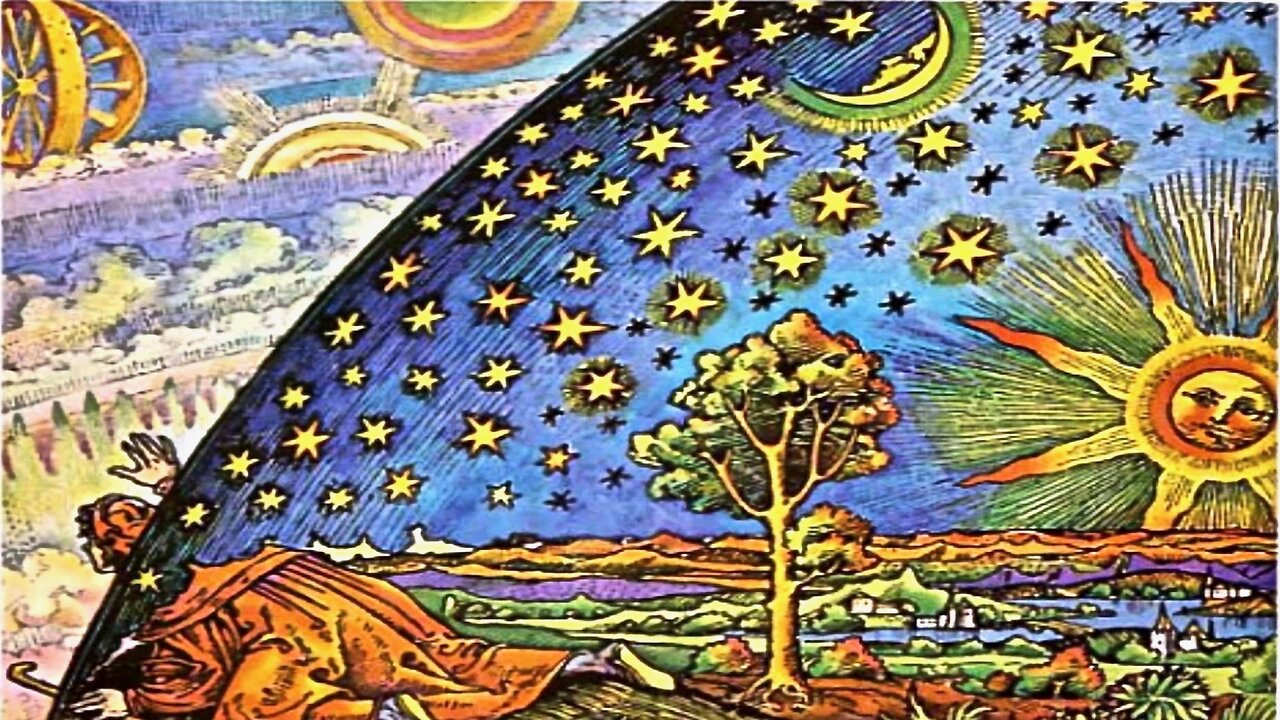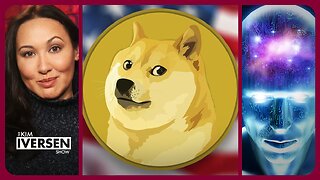Premium Only Content

History of Alchemy & Mystical Sciences ~ Full Documentary
Alchemy was born in ancient Egypt, where the word Khem was used in reference to the fertility of the flood plains around the Nile. Egyptian beliefs in life after death, and the mummification procedures they developed, probably gave rise to rudimentary chemical knowledge and a goal of immortality. By 332 BC, Alexander the Great had conquered Egypt. Greek philosophers became interested in the Egyptian ways. Greek views of how matter is made up of the four elements of nature - Fire, Earth, Air and Water, were merged with the
Egyptian sacred science. The result was Khemia, the Greek word for Egypt. When Egypt was occupied by the Arabs in the 7th Century, they added 'al-' to the word Khemia and al-Khemia meaning 'the Black Land' is now seen as a possible origin for the word alchemy. The Greek word khumos, meaning 'fluid' has been suggested as an alternate origin for the word alchemy, there is as yet no consensus on the matter. It is unfortunate that more is not known about this early period in the history of alchemy. In 391, invading Christians burned the great library in Alexandria, destroying many relevant works.
Alchemy was also developed independently in China by Taoist monks.
The monks pursued both the outer elixir and the inner elixir. The former being minerals, plants etc. which could prolong life, and the latter being the use of exercise techniques, such as Qigong, to manipulate the chi or life force of the body.
Many of the earliest chemists, physicians, and philosophers were also alchemists. The word “alchemy” brings to mind a cauldron-full of images: witches hovering over a boiling brew, or perhaps sorcerers in smoky labs or cluttered libraries. Despite these connotations of the mythic and mystical, alchemical practice played an important role in the evolution of modern science. Historically, alchemy refers to both the investigation of nature and an early philosophical and spiritual discipline that combined chemistry with metal work. Alchemy also encompassed physics, medicine, astrology, mysticism, spiritualism, and art. The goals of alchemy were:
to find the “elixir of life” (it was thought that this magical elixir would bring wealth, health, and immortality);
to find or make a substance called the “philosopher’s stone,” which when heated and combined with “base” (nonprecious metals such as copper and iron) would turn it into gold, thought to be the highest and purest form of matter; and
to discover the relationship of humans to the cosmos and use that understanding to improve the human spirit.
Alchemy was scientific but it was also a spiritual tradition. Some of its practitioners had altruistic intentions. For instance, if alchemists could learn the secret of “purifying” base metals into gold, they might gain the ability to purify the human soul. At the same time, alchemy has often been seen as a get-rich-quick scheme and many alchemists as charlatans and pretenders. But many alchemists were in fact serious-minded practitioners whose work helped lay the groundwork for modern chemistry and medicine.
Alchemy began as a quest to know the world around us — its composition as well as our own. That quest for knowledge required an understanding of chemical processes, and while alchemy itself would not survive the Enlightenment (the Age of Reason of the 17th and 18th centuries), the quest it began continues today in chemistry. To understand the ever-evolving field of chemistry, which is sometimes called “the central science” because it connects natural sciences like physics, geology, and biology, it’s critical to grasp its beginnings.
Alchemists contributed to an incredible diversity of what would later be recognized as chemical industries: basic metallurgy, metalworking, the production of inks, dyes, paints, and cosmetics, leather-tanning, and the preparation of extracts and liquors. It was a fourth-century Indian alchemist who first described the process of zinc production by distillation, a 17th- century German alchemist who isolated phosphorus, and another German alchemist of the same period who developed a porcelain material that broke China’s centuries-old monopoly on one of the world’s most valuable commodities. These contributions proved valuable to the societies in which alchemists lived and to the advancement of civilization.
But alchemists often made no distinction between purely chemical questions and the more mystical aspects of their craft. They lacked a common language for their concepts and processes. They borrowed the terms and symbols of biblical and pagan mythology, astrology, and other spiritual arenas, making even the simplest formula read like a magic spell or ritual. And although there were commonly used techniques, alchemists shared no standardized, established scientific practice.
-
 48:13
48:13
Seeker Land
1 month agoHow the Dinosaurs Died - Asteroid Apocalypse - Full Documentary
2092 -
 3:38:57
3:38:57
Digital Social Hour
1 day ago $0.85 earnedAndrew Tate EXPOSES the Truth About Legal Battles, Politics & Masculinity | Andrew Tate DSH #1231
1.89K2 -
 LIVE
LIVE
Laura Loomer
2 hours agoEP108: Dems Embrace Domestic Terrorism To "Get Trump"
1,523 watching -
 3:01:51
3:01:51
Right Side Broadcasting Network
4 hours agoWATCH: NASA’s SpaceX Crew-10 Launch
50K25 -
 2:06:17
2:06:17
Glenn Greenwald
3 hours agoJudge Orders Hearing on Columbia Student Deportation Case; Is the Ukraine Ceasefire Plan Serious? Trump Attacks Thomas Massie for His Budget Vote | SYSTEM UPDATE #422
67.4K53 -
 47:16
47:16
BonginoReport
6 hours agoTrump-Elon Bromance Triggers The Libs (Ep.03) - 03/12/2025
102K180 -
 4:03:41
4:03:41
Barry Cunningham
7 hours agoTRUMP DAILY BRIEFING: PRESIDENT TRUMP PRESS CONFERENCE | DEMOCRATS IN PANIC!
59.3K49 -
 1:56:30
1:56:30
Melonie Mac
5 hours agoGo Boom Live Ep 40!
21K2 -
 DVR
DVR
Kim Iversen
4 hours agoDOGE, Trump, Aliens and Remote Viewing: A Deep Dive into the Unknown
24K24 -
 1:20:08
1:20:08
Redacted News
6 hours agoPutin smells a TRAP as Ukraine agrees to Trump's U.S. ceasefire plan | Redacted w Clayton Morris
145K155